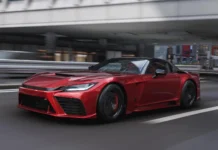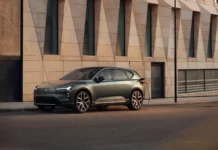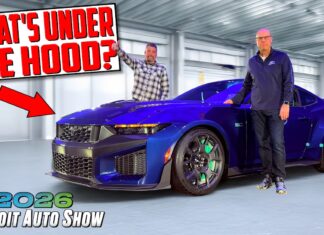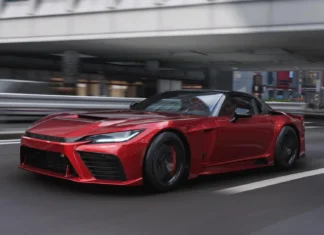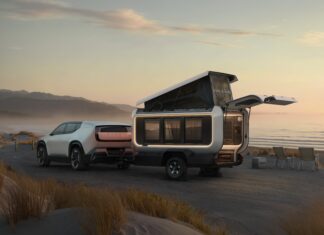
Scout Motors was established in 2022 to revive an iconic name as an SUV and truck.
After nearly half a century, the International Harvester Scout will see a spiritual successor in a brand-new, all-electric vehicle built by Scout Motors Inc., a wholly-owned (but legally and functionally independent) subsidiary of Volkswagen Group. To mark the occasion, the automaker hosted a groundbreaking ceremony at its future production site in Blythewood, South Carolina, just north of Columbia, with several parties involved in the site’s construction from local and state politicians to executives overseeing the project, as well as select members of the media.

The ceremony included Scout Motors CEO Scott Keogh, South Carolina governor Henry McMaster. There was no “shiny shovel”, noted Keogh, as construction has in fact already begun on the site, and he went on to say, “…the truth of the matter is that what we’re doing here is far more profound than just a production thing. What we’re doing here is relaunching an American icon and we’re doing it here in South Carolina, and we couldn’t be prouder of doing it here in this beloved place.”





Over the next year and beyond, contractors will make Scout Motors’ $2 billion EV factory a reality. The plant comprises 1,100 acres, and the completed facility will eventually add 4,000 jobs to the area. On top of the local impact, the company aims to produce up to 200,000 vehicles annually — or 40 vehicles per hour — when the plant reaches full capacity. (Quick clarification: The entire site is 1,600 acres, but the plant buildings will occupy about 1,100 acres once they are completed.)
In a media roundtable discussion, Dr. Jan Spies, Scout Motors’ chief production officer, elaborated on how the company would draw in Volkswagen Groups’ technical expertise to devise a sound strategy to ramp up production on its first two vehicles, which will be a reimagined and thoroughly modern version of the Scout SUV as well as a pickup truck variant. Spies did not specify an exact timetable in which the company would reach that 200,000-unit capacity once the plant comes online, and Keogh added that part of the decision on how quickly the company would increase production depends on initial market reaction to the consumer-spec Scout EV’s launch.

At the moment, the first two models to emerge from Scout Motors will actually start production around calendar year 2026 (likely as a 2026 model). The initial debut of the vehicle to the public, however, will be sometime this summer, and we should get more specific details at that point.
44 years after the original Scout went out of production, this is the perfect time to launch an off-road SUV. With the Jeep Wrangler and Ford Bronco flying off lots, to say nothing of other electric and ICE off-roaders vying for market share, Scout Motors contends it will have the right product at the right time to justify its ambitious production goals.
It should also come in priced well under the Rivian R1S and competitive to established off-road SUVs, though we’re a long way from knowing exact MSRPs for the new Scout models. The general consensus right now is that Scout Motors will price each model around $50,000, give or take a few thousand (and excluding any federal or state EV incentives).


A piece of the old Scout’s heritage will live on in Blythewood
Prior to the groundbreaking, I had the opportunity to experience the nameplate’s history firsthand, as I joined the Scout Motors team on a classic rally from the original SUV’s production plant in Fort Wayne, Indiana to Blythewood. Along the way, we carried a brick from the old plant to the groundbreaking ceremony. The brick will be housed on-site as a reminder of its history under the International Harvester and Navistar brands, as the new entity charges through construction to begin producing new EVs in the next two years.


